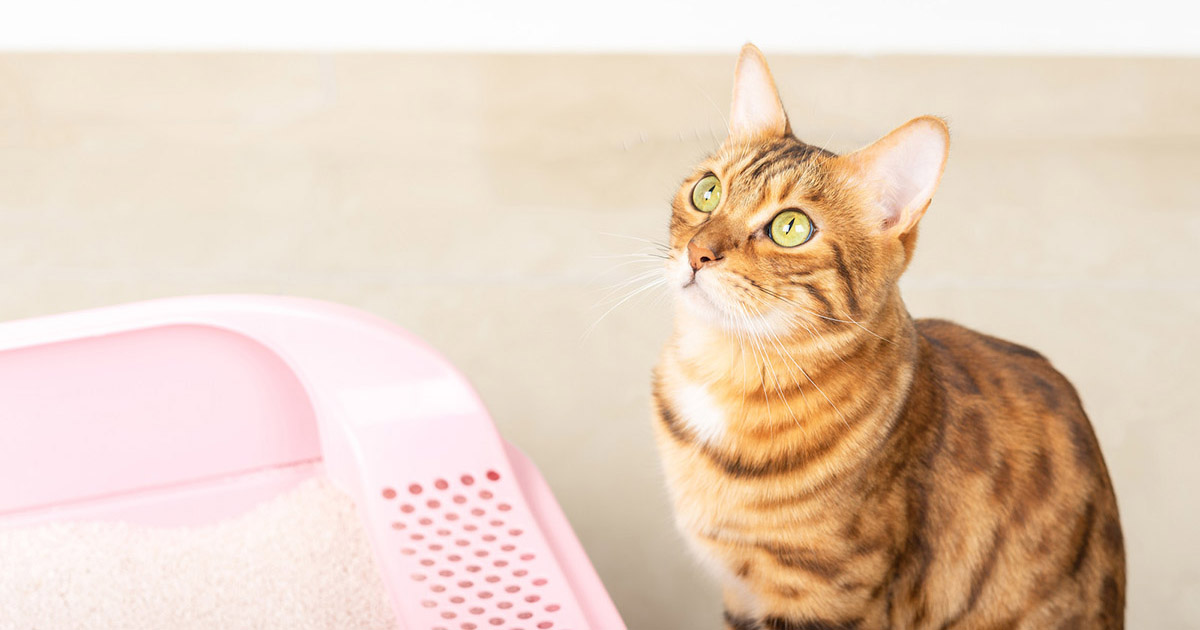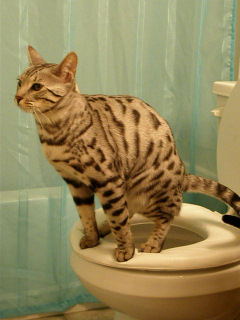Why You Should Never Flush Cat Poop Down Your Toilet - Important Information
Why You Should Never Flush Cat Poop Down Your Toilet - Important Information
Blog Article
The article following next pertaining to Don’t flush cat feces down the toilet is really engaging. Check it out for yourself and figure out what you think about it.

Introduction
As feline proprietors, it's essential to bear in mind how we deal with our feline buddies' waste. While it might seem practical to purge pet cat poop down the commode, this method can have damaging repercussions for both the atmosphere and human health.
Alternatives to Flushing
Fortunately, there are safer and extra accountable ways to deal with pet cat poop. Think about the following choices:
1. Scoop and Dispose in Trash
The most usual technique of getting rid of pet cat poop is to scoop it into an eco-friendly bag and throw it in the garbage. Be sure to utilize a dedicated trash inside story and deal with the waste immediately.
2. Usage Biodegradable Litter
Opt for naturally degradable pet cat clutter made from materials such as corn or wheat. These litters are environmentally friendly and can be securely disposed of in the trash.
3. Bury in the Yard
If you have a backyard, consider hiding feline waste in a designated location away from vegetable yards and water resources. Be sure to dig deep enough to stop contamination of groundwater.
4. Set Up a Pet Waste Disposal System
Invest in a pet dog waste disposal system specifically created for cat waste. These systems make use of enzymes to break down the waste, minimizing smell and environmental impact.
Health Risks
Along with environmental worries, purging pet cat waste can likewise posture wellness dangers to human beings. Feline feces may include Toxoplasma gondii, a parasite that can trigger toxoplasmosis-- a possibly extreme ailment, specifically for expecting women and people with damaged immune systems.
Environmental Impact
Purging feline poop presents dangerous virus and parasites into the water, posing a considerable danger to water ecological communities. These contaminants can negatively impact marine life and compromise water quality.
Conclusion
Responsible pet ownership extends past giving food and sanctuary-- it likewise includes appropriate waste management. By avoiding purging feline poop down the bathroom and choosing alternative disposal approaches, we can lessen our environmental impact and secure human health.
Why Can’t I Flush Cat Poop?
It Spreads a Parasite
Cats are frequently infected with a parasite called toxoplasma gondii. The parasite causes an infection called toxoplasmosis. It is usually harmless to cats. The parasite only uses cat poop as a host for its eggs. Otherwise, the cat’s immune system usually keeps the infection at low enough levels to maintain its own health. But it does not stop the develop of eggs. These eggs are tiny and surprisingly tough. They may survive for a year before they begin to grow. But that’s the problem.
Our wastewater system is not designed to deal with toxoplasmosis eggs. Instead, most eggs will flush from your toilet into sewers and wastewater management plants. After the sewage is treated for many other harmful things in it, it is typically released into local rivers, lakes, or oceans. Here, the toxoplasmosis eggs can find new hosts, including starfish, crabs, otters, and many other wildlife. For many, this is a significant risk to their health. Toxoplasmosis can also end up infecting water sources that are important for agriculture, which means our deer, pigs, and sheep can get infected too.
Is There Risk to Humans?
There can be a risk to human life from flushing cat poop down the toilet. If you do so, the parasites from your cat’s poop can end up in shellfish, game animals, or livestock. If this meat is then served raw or undercooked, the people who eat it can get sick.
In fact, according to the CDC, 40 million people in the United States are infected with toxoplasma gondii. They get it from exposure to infected seafood, or from some kind of cat poop contamination, like drinking from a stream that is contaminated or touching anything that has come into contact with cat poop. That includes just cleaning a cat litter box.
Most people who get infected with these parasites will not develop any symptoms. However, for pregnant women or for those with compromised immune systems, the parasite can cause severe health problems.
How to Handle Cat Poop
The best way to handle cat poop is actually to clean the box more often. The eggs that the parasite sheds will not become active until one to five days after the cat poops. That means that if you clean daily, you’re much less likely to come into direct contact with infectious eggs.
That said, always dispose of cat poop in the garbage and not down the toilet. Wash your hands before and after you clean the litter box, and bring the bag of poop right outside to your garbage bins.
https://trenchlesssolutionsusa.com/why-cant-i-flush-cat-poop/

I stumbled upon that content about Can You Flush Cat Poo or Litter Down the Toilet? when perusing the web. Make sure you take a moment to promote this content if you appreciated it. I value reading our article about How to Dispose of Cat Poop and Litter Without Plastic Bags.
Maintenance Sign-Up Report this page